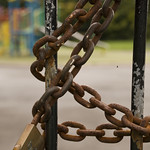When a divorced couple has children, life can get very complicated. Each parent is now on their own and suddenly realize all of the small things they did not notice when they had the other parent to back them up. Parents of babies and toddlers are tested by late nights and early mornings, with no one to alternate sleep, feedings, changing, and difficult nights with. Mothers and fathers of school aged children have to handle the morning routine: getting the kids to school, meeting with teachers, and driving the kids to after-school activities, all on their own. Managing life after divorce as a parent is not easy, but life will get back to normal much faster if steps are taken to deal with the challenges, instead of just hoping for a solution.
Struggles of Single Parents
Going through a divorce and living with divorce are very complicated life events which statistics show that many people in this country go through. Below are the two main challenges for single parents:
- Childcare
This can be tricky one when the other parent doesn’t want to play nice. Developing a set schedule, if at all possible, for visitations will make it a little easier to figure out childcare. After visitation is established, each parent needs to find their own sitters or agree on one childcare or babysitter for both schedules. Both parents should have their own backup in case help bails at the last moment. This will keep the other parent from having to cancel their own plans to watch the children.
- Finances
If child support or alimony is in play, you could come out a little better or a little worse; this depends on if you are the one receiving it or not. Large house payments and car leases might not have fazed you before, but now that there is one income, it’s likely time to downsize. The best way to downsize is to move into a smaller house with lower rent or mortgage; otherwise, make sure you’re not overdoing it on the spending – credit card bills can drown a single person.
Coping with Stress
Divorce and death are the two most stressful events for people to deal with in life. Stress can take its toll on the individual and potentially destroy their life. With such a high stress situation, how does a single parent cope? Below are the five best ways to cope with stress during a divorce.
Manage your weight with diet and exercise
It’s not about vanity or attracting another partner, keeping a steady weight will keep your hormone levels normal.
Get out and be around the people you used to spend time with
When you’re married, you tend to push aside others in your life to spend time with your spouse. If you’re dealing with divorce, now is a great time to reconnect with the people you lost touch with. Reconnecting will give you a chance to talk to people about things other than the stressful separation – it also gives you ‘adult’ time away from the kids.
Laugh
Laughing is a great coping mechanism; when you laugh your body releases serotonin and reduces cortisol levels. Watch a funny movie, go watch a comedian, or just have your kids tell you about their silly perspectives on childhood things.
Don’t turn to vices such as smoking, drinking or drugs
This one is important for everyone, but most especially for parents. As tempting as it may be to turn to vices to get you through the divorce, do not give in. Smoking, drinking, or using drugs will only make you feel ‘okay’ for a very short while; most of the time, using these substances end up making you feel much worse as soon as they clear your system. More importantly, you don’t want to set that example for emotionally vulnerable children.
Read more about coping with stress on the CDC webpage.
Ginarte O’Dwyer Gonzalez Gallardo & Winograd, LLP is a family divorce law firm located in New Jersey/New York. For more information, please visit us at www.Ginarte.com.




